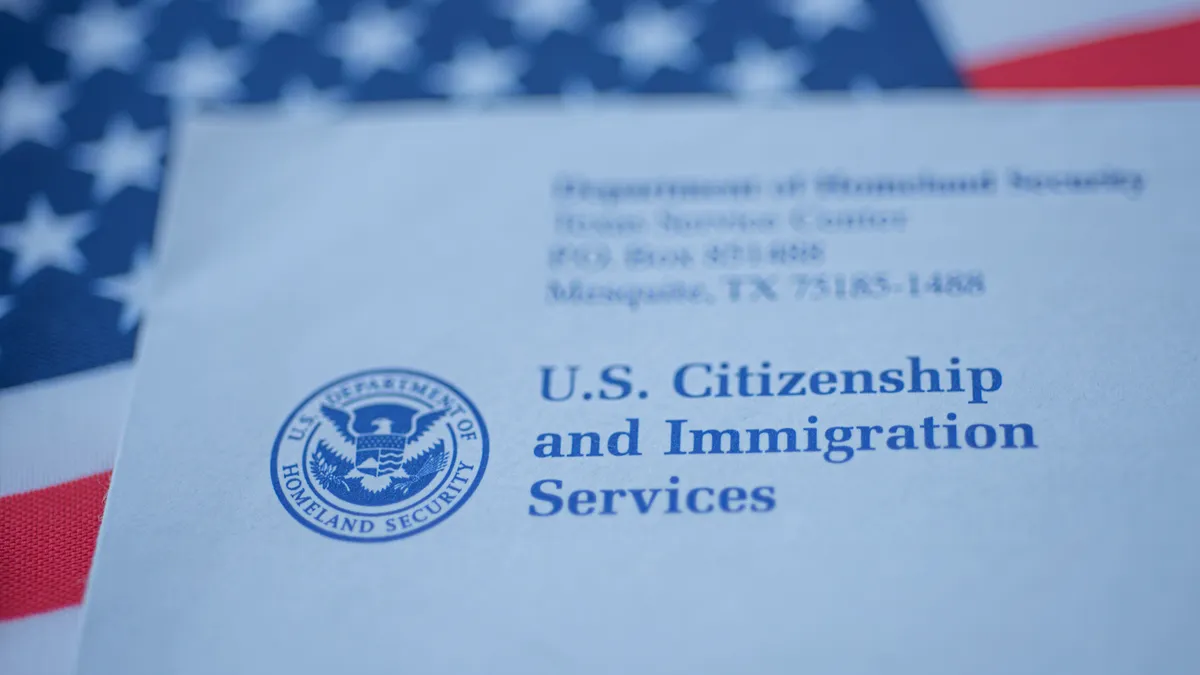Dive Brief:
- New York-based boutique bakery Lady M Confections Co. and its West Coast affiliate Lady M West Third settled U.S. Department of Justice allegations the companies violated the Immigration and Nationality Act by discriminating against non-U.S. citizens when checking their permission to work in the U.S., the DOJ announced Nov. 29. Lady M will pay a civil penalty of $1,864, according to the settlement.
- The DOJ began investigating Lady M after a non-U.S. citizen complained it refused to accept his valid documents and asked for additional and unnecessary documentation to verify his eligibility to work in the U.S., the announcement said. The DOJ determined that Lady M asked lawful permanent residents to show their permanent resident cards (“green cards”), instead of letting them choose from various acceptable documents — as the INA requires and as the company alleged did with U.S. citizens, according to the DOJ.
- “Many non-U.S. citizens, including lawful permanent residents, refugees and asylees, are eligible for several of the same types of documents [as U.S. citizens] to prove their permission to work,” the DOJ explained. These documents include driver’s licenses and unrestricted Social Security cards, it said. Lady M did not respond to a request for a comment before press time.
Dive Insight:
The INA requires employers to verify the identity and employment eligibility of all individuals hired in the U.S. after Nov. 6, 1986, according to guidance from the U.S. Immigration and Customs Enforcement, which is a part of the Department of Homeland Security.
Form I-9 is the vehicle for documenting this verification, the guidance states. Page 3 of the form shows which documents are acceptable: Employees can submit one document from List A to verify both identity and employment authorization, or they can submit a combination of one document from List B to verify their identity and one document from List C to verify authorization to work in the U.S. Employers must then examine the submitted documents to determine if they “reasonably appear to be genuine and relate to the employee” and record the information onto the employee’s I-9 form, ICE says.
Key for employers is that “federal law allows all workers to choose which valid, legally acceptable documentation to present,” the DOJ announcement explains. This requirement is found in the INA’s anti-discrimination provision, which is enforced by the DOJ’s Immigrant and Employee Rights Section (IER) and prohibits employers from discriminating against work-authorized individuals on the basis of citizenship, immigration status or national origin, according to a DOJ FAQ.
Asking a worker for specific documents because of their citizenship, immigration status or national origin is considered discriminatory and violates the INA, the DOJ says. The permanent resident card appears on List A, so it may be the simplest way for some non-U.S. citizens to verify identity and employment eligibility, but as the DOJ settlement with Lady M reminds employers, it can’t be required.
The mistake is not unique. Recently, The Giant Co., a Pennsylvania-based grocery story chain, agreed to settle DOJ allegations that it routinely required non-U.S. citizens to show their green cards when checking employment eligibility, HR Dive reported.
Another misstep is allowing untrained staff to administer the I-9, the Society for Human Resource Management pointed out in an August post. In this regard, the Lady M settlement may be instructive. It requires “all managers and employees who have any role in the employment eligibility verification process, such as completing the Form I-9 and/or using the E-verify program,” to review and have readily available the most current I-9 form, the U.S. Customs and Immigration Service’s Employment Eligibility Verification Handbook for Employers and the most current USCIS E-Verify Manual.
Employers should also note that several federal agencies have the authority to inspect their I-9 forms, including ICE, the DOJ’s IER section and the U.S. Department of Labor, according to the USCIS.











